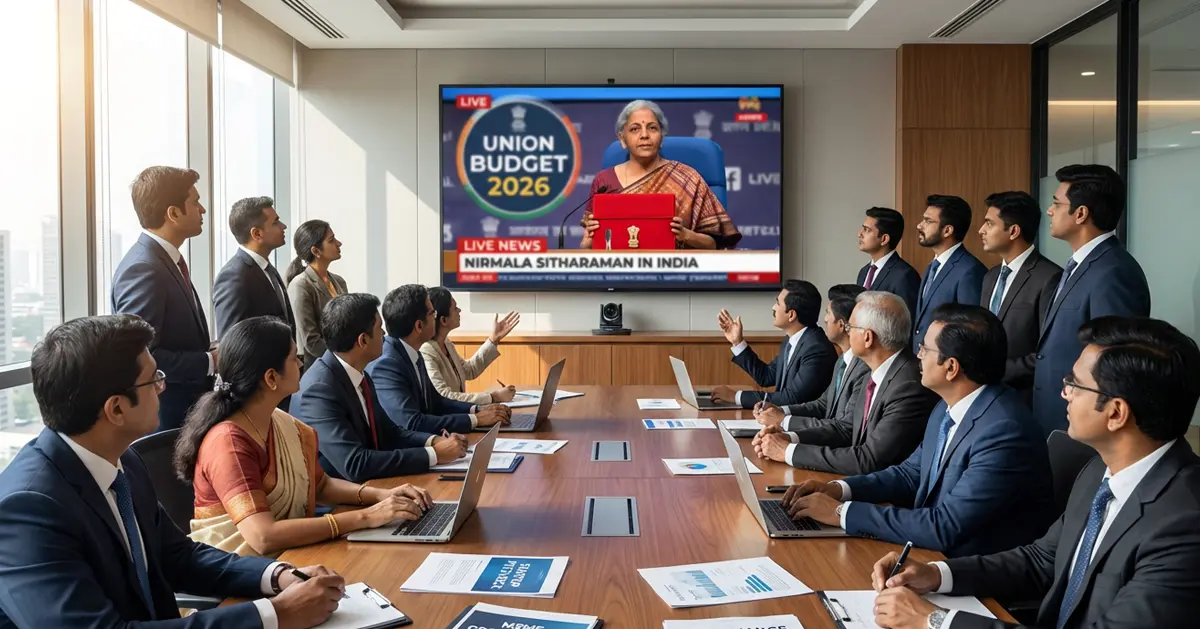
Starting a business in today’s dynamic market requires fresh thinking and innovative approaches. The landscape of entrepreneurship is evolving rapidly, especially in India.
Did you know? The Indian startup ecosystem is valued at over $350 billion in 2026, making it the third-largest globally.
Finding the right 12 unique business ideas can transform your entrepreneurial journey from uncertainty to success. These carefully curated, unique business ideas focus on emerging trends and consumer demands.
Whether you’re looking for unique home business ideas or scalable ventures, this comprehensive guide covers everything.
Why is 2026 Perfect for Starting Unique Business Ideas?
The post-pandemic world has created unprecedented opportunities for entrepreneurs. Consumer behavior has shifted dramatically, creating gaps in the market. Technology adoption has accelerated, making previously complex business models accessible to everyone.
Moreover, government initiatives like Startup India and Digital India are providing excellent support. Access to funding has improved significantly through various schemes and angel investors. The time couldn’t be better for launching new and unique business ideas.
12 Unique Business Ideas That Will Dominate 2026
These 12 unique business ideas combine market demand with innovation to create profitable opportunities. Each concept addresses emerging needs while offering strong growth potential in India.
1. AI-Powered Personal Shopping Assistant Service
Artificial intelligence is revolutionizing how people shop and make purchasing decisions. This unique business idea involves creating personalized shopping experiences using AI technology. You can help customers find products that match their preferences, budget, and lifestyle.
The market for AI-powered services is expected to reach $190 billion by 2026. Indian consumers are increasingly comfortable with technology-driven solutions. This presents an excellent opportunity for unique business name ideas with meaning.
- Investment Required: ₹2-5 lakhs.
- Target Market: Urban millennials and Gen-Z consumers.
- Revenue Model: Commission-based or subscription service.
2. Sustainable Packaging Solutions for E-commerce
Environmental consciousness is driving demand for eco-friendly packaging alternatives. This unique manufacturing business idea focuses on creating biodegradable packaging materials. You can partner with e-commerce companies, restaurants, and retail stores.
The sustainable packaging market is growing at 7.2% annually in India. Government regulations are also favoring eco-friendly alternatives over traditional plastic packaging. This creates a perfect storm for sustainable business growth.
- Investment Required: ₹5-15 lakhs.
- Target Market: E-commerce companies, food delivery services.
- Revenue Model: Direct sales and bulk contracts.
3. Virtual Interior Design Consultancy
Home makeover trends have exploded, especially after remote work became mainstream. This unique home business idea leverages virtual reality and design software. You can offer complete interior design services without physical site visits.
The Indian interior design market is worth ₹20,000 crores and growing rapidly. Virtual consultations reduce costs and increase accessibility for middle-class families. This makes it one of the most promising new unique business ideas.
- Investment Required: ₹1-3 lakhs.
- Target Market: Homeowners, renters, real estate developers.
- Revenue Model: Project-based fees and consultation charges.
4. Hyperlocal Organic Food Delivery Network
Health-conscious consumers are seeking fresh, organic produce delivered to their doorstep. This unique food business idea connects local farmers directly with urban consumers. You eliminate middlemen while ensuring freshness and fair pricing.
The organic food market in India is expanding at 25% annually. Urban areas show the highest demand for chemical-free produce. This creates an excellent opportunity for hyperlocal business models.
- Investment Required: ₹3-10 lakhs.
- Target Market: Health-conscious families, fitness enthusiasts.
- Revenue Model: Markup on products and delivery charges.
5. Digital Detox and Wellness Retreats
Screen addiction and digital fatigue are creating demand for disconnection experiences. This service-based unique business idea offers structured programs for digital wellness. You can combine meditation, yoga, and nature activities.
The wellness tourism market is growing at 20% annually in India. People are willing to pay premium prices for authentic wellness experiences. This represents a lucrative niche in the growing wellness sector.
- Investment Required: ₹5-20 lakhs.
- Target Market: Professionals, students, corporate groups.
- Revenue Model: Package pricing and corporate contracts.
6. Drone-Based Agricultural Services
Indian agriculture needs technological intervention to improve productivity and reduce costs. This unique business idea uses drones for crop monitoring, pesticide spraying, and yield assessment. You can serve multiple farmers in your region.
The agri-tech market in India is expected to reach $24 billion by 2026. Government subsidies are available for agricultural technology adoption. This makes it an attractive proposition for rural entrepreneurs.
- Investment Required: ₹8-25 lakhs.
- Target Market: Farmers, agricultural cooperatives.
- Revenue Model: Service charges per acre or monthly subscriptions.
7. Personalized Learning Platform for Skill Development
The gig economy requires continuous skill upgradation and personalized learning approaches. This edtech unique business idea creates customized learning paths for individuals. You can focus on practical skills rather than theoretical knowledge.
India’s online education market is worth $2 billion and growing at 44% annually. Professional skill development has the highest demand among working adults. This creates opportunities for specialized learning platforms.
- Investment Required: ₹3-12 lakhs.
- Target Market: Working professionals, freelancers, entrepreneurs.
- Revenue Model: Course fees and subscription models.
8. Smart Home Automation for Middle-Class Families
Home automation is no longer limited to luxury homes. This unique business idea makes smart home technology affordable for middle-class families. You can offer customized automation solutions within budget constraints.
The smart home market in India is expected to reach $6 billion by 2026. Cost-effective solutions are driving adoption among middle-income households. This creates opportunities for localized automation services.
- Investment Required: ₹4-15 lakhs.
- Target Market: Middle-class homeowners, tech enthusiasts.
- Revenue Model: Installation charges and product sales.
9. Elderly Care and Companionship Services
India’s aging population needs specialized care and emotional support services. This unique home business idea provides trained companions for elderly individuals. You can offer medical assistance, daily activities support, and social interaction.
The elderly care market is growing at 15% annually in India. Nuclear families are creating demand for professional elderly care services. This represents a socially impactful business opportunity.
- Investment Required: ₹2-8 lakhs.
- Target Market: Families with elderly members, senior citizens.
- Revenue Model: Hourly charges and monthly care packages
10. Upcycled Fashion and Accessories Brand
Sustainable fashion is gaining momentum among environmentally conscious consumers. This unique business idea transforms waste materials into trendy clothing and accessories. You can create unique pieces while promoting sustainability.
The sustainable fashion market is growing at 10% annually globally. Indian consumers are becoming more environmentally aware in their choices. This creates opportunities for creative and eco-friendly fashion brands.
- Investment Required: ₹3-10 lakhs.
- Target Market: Millennials, eco-conscious consumers.
- Revenue Model: Direct sales and online marketplace.
11. Virtual Event Planning and Management
Post-pandemic hybrid events require specialized planning and technical expertise. This service unique business idea manages both physical and virtual components. You can serve corporate clients, wedding planners, and educational institutions.
The event management industry is recovering and adapting to hybrid models. Virtual events reduce costs while increasing reach and accessibility. This creates new opportunities for tech-savvy event planners.
- Investment Required: ₹2-7 lakhs.
- Target Market: Corporations, educational institutions, social events.
- Revenue Model: Event planning fees and technology charges.
12. Micro-Mobility Solutions for Urban Areas
Urban transportation challenges create opportunities for innovative mobility solutions. This unique business idea offers electric scooters, bikes, and other micro-mobility options. You can focus on last-mile connectivity and short-distance travel.
The micro-mobility market is expected to reach $12 billion globally by 2026. Indian cities are embracing electric and sustainable transportation alternatives. This creates opportunities for localized mobility services.
- Investment Required: ₹10-50 lakhs.
- Target Market: Urban commuters, college students, office workers.
- Revenue Model: Rental charges and subscription models.
How to Turn Top Ideas into Successful Businesses?
Transforming a brilliant idea into a thriving business requires systematic planning and execution. Many entrepreneurs fail because they skip crucial steps in the business development process. Success comes from following proven methodologies while adapting to market feedback.
The journey from concept to profitable venture involves multiple stages and careful decision-making. Each step builds upon the previous one, creating a solid foundation. Let’s explore the complete roadmap for turning your unique business ideas into reality.
Step 1: Validate Your Business Concept
Market validation is the foundation of any successful business venture. Start by conducting thorough research on your target audience and competitors. Create surveys and interview potential customers to understand their pain points.
Example: Before launching Zomato, the founders spent months talking to restaurant owners and customers. They discovered the gap in restaurant discovery and food delivery services. This validation helped them refine their concept and secure initial funding.
Action Points:
- Conduct 50+ customer interviews within your target demographic.
- Analyze competitor pricing, features, and customer reviews thoroughly.
- Create a simple landing page to gauge interest and collect emails.
- Run small-scale pilot tests with 10-20 potential customers.
Step 2: Develop a Comprehensive Business Plan
A detailed business plan serves as your roadmap and helps attract investors. Include market analysis, financial projections, and operational strategies in your plan. This document will guide your decisions and measure progress.
Example: Flipkart’s initial business plan focused on online book sales before expanding. Their clear vision and detailed financial projections helped them secure funding. The plan evolved as they learned from market feedback.
Action Points:
- Define your value proposition in one clear sentence.
- Create 3-year financial projections with realistic assumptions.
- Outline your marketing strategy and customer acquisition plan.
- Identify key milestones and success metrics for tracking progress.
Step 3: Build Your Minimum Viable Product (MVP)
Start with a basic version that solves the core problem effectively. This approach helps you test assumptions without massive investment. Gather user feedback and iterate quickly based on real usage.
Example: Paytm started as a simple mobile recharge platform before becoming a super app. Their MVP focused on one core function and expanded gradually. This strategy helped them understand customer needs better.
Action Points:
- Focus on 2-3 core features that solve the main problem.
- Set a 3-month timeline for MVP development and testing.
- Budget 20-30% of total funds for MVP development.
- Plan for at least 3 iterations based on user feedback.
Step 4: Establish Strong Brand Identity
Your brand differentiates you from competitors and builds customer loyalty. Develop consistent messaging, visual identity, and customer experience across all touchpoints. Strong branding commands higher prices and customer retention.
Example: Amul’s consistent branding and messaging have made it India’s most trusted dairy brand. Their topical advertisements and quality consistency built strong brand recognition. This brand strength helped them expand into multiple product categories.
Action Points:
- Create brand guidelines covering logo, colors, and messaging tone.
- Develop a unique selling proposition that resonates with the target audience.
- Design consistent visual identity across all marketing materials.
- Register trademarks and secure relevant domain names early.
Common Challenges and Solutions
Every unique business idea faces obstacles on the road to success. Understanding these common challenges and applying practical solutions can help entrepreneurs navigate uncertainty and scale effectively.
Challenge 1: Market Education and Customer Acquisition
Many unique business ideas require extensive customer education before purchase decisions. Traditional marketing approaches may not work for innovative products. Building awareness takes time and consistent effort.
Solution Steps:
- Content Marketing: Create educational blog posts, videos, and webinars.
- Demonstration Events: Organize product demos at relevant venues.
- Partnership Strategy: Collaborate with established brands for credibility.
- Customer Success Stories: Showcase early adopter testimonials prominently.
Example: Tesla faced skepticism about electric vehicles initially in many markets. They organized test drives, created educational content, and built charging infrastructure. Their persistent education efforts changed consumer perceptions gradually.
Challenge 2: Competition from Established Players
Large companies may enter your market once they see success potential. They have resources, distribution channels, and brand recognition advantages. Small businesses need different strategies to compete effectively.
Solution Steps:
- Focus on Agility: Make decisions and adapt faster than large competitors.
- Personalized Service: Offer customization that large companies cannot match.
- Niche Specialization: Dominate specific segments before expanding broadly.
- Customer Relationships: Build personal connections that big companies struggle with.
Example: Local grocery delivery startups compete with Amazon and Flipkart successfully. They focus on same-day delivery, local products, and personal relationships. This approach helps them retain customers despite price competition.
Challenge 3: Scaling Operations Efficiently
Growing from startup to established business requires different systems and processes. Many entrepreneurs struggle with operational complexity as they scale. Poor planning leads to quality issues and customer dissatisfaction.
Solution Steps:
- Process Documentation: Create standard operating procedures for all activities.
- Technology Integration: Implement systems that automate routine tasks.
- Team Training: Develop comprehensive training programs for new employees.
- Quality Control: Establish monitoring systems to maintain standards.
Example: Zomato scaled from one city to global operations by systematizing everything. They created standardized processes for restaurant onboarding, delivery management, and customer service. This systematic approach enabled rapid expansion.
Challenge 4: Cash Flow Management
Many profitable businesses fail due to poor cash flow management. Revenue growth doesn’t always translate to positive cash flow. Managing working capital becomes critical for survival.
Solution Steps:
- Invoice Management: Send invoices immediately and follow up on payments.
- Inventory Optimization: Maintain optimal stock levels to reduce carrying costs.
- Payment Terms: Negotiate favorable terms with suppliers and customers.
- Cash Flow Forecasting: Prepare weekly cash flow projections and scenarios.
Example: Many manufacturing businesses struggle with cash flow despite good orders. They solve this by factoring receivables, negotiating extended payment terms, and maintaining credit lines. Proper planning prevents cash crunches.
The world of entrepreneurship in 2026 offers unprecedented opportunities for those willing to think differently. These 12 unique business ideas represent just the beginning of what’s possible. Success comes from choosing ideas that align with your skills and passion.
Remember that every successful business started with someone taking the first step. Market conditions in India are favorable for new and innovative ventures. Government support, growing economy, and changing consumer preferences create perfect conditions.
Start small, validate your assumptions, and scale gradually as you gain experience. The journey of building a unique business is challenging but incredibly rewarding. Your innovative idea could be the next big success story.
Take action today and begin your entrepreneurial journey with confidence and determination. The future belongs to those who dare to create something new and valuable. Your unique business idea is waiting to transform into reality.
Ready to transform your Business Dreams Into Legal Reality With Us! Contact RegisterKaro for a free consultation.
Frequently Asked Questions
Digital services like consulting, content writing, and online coaching need just ₹10,000-50,000. Virtual assistance, social media management, and graphic design require minimal investment. Most can start from home with a laptop and internet.




